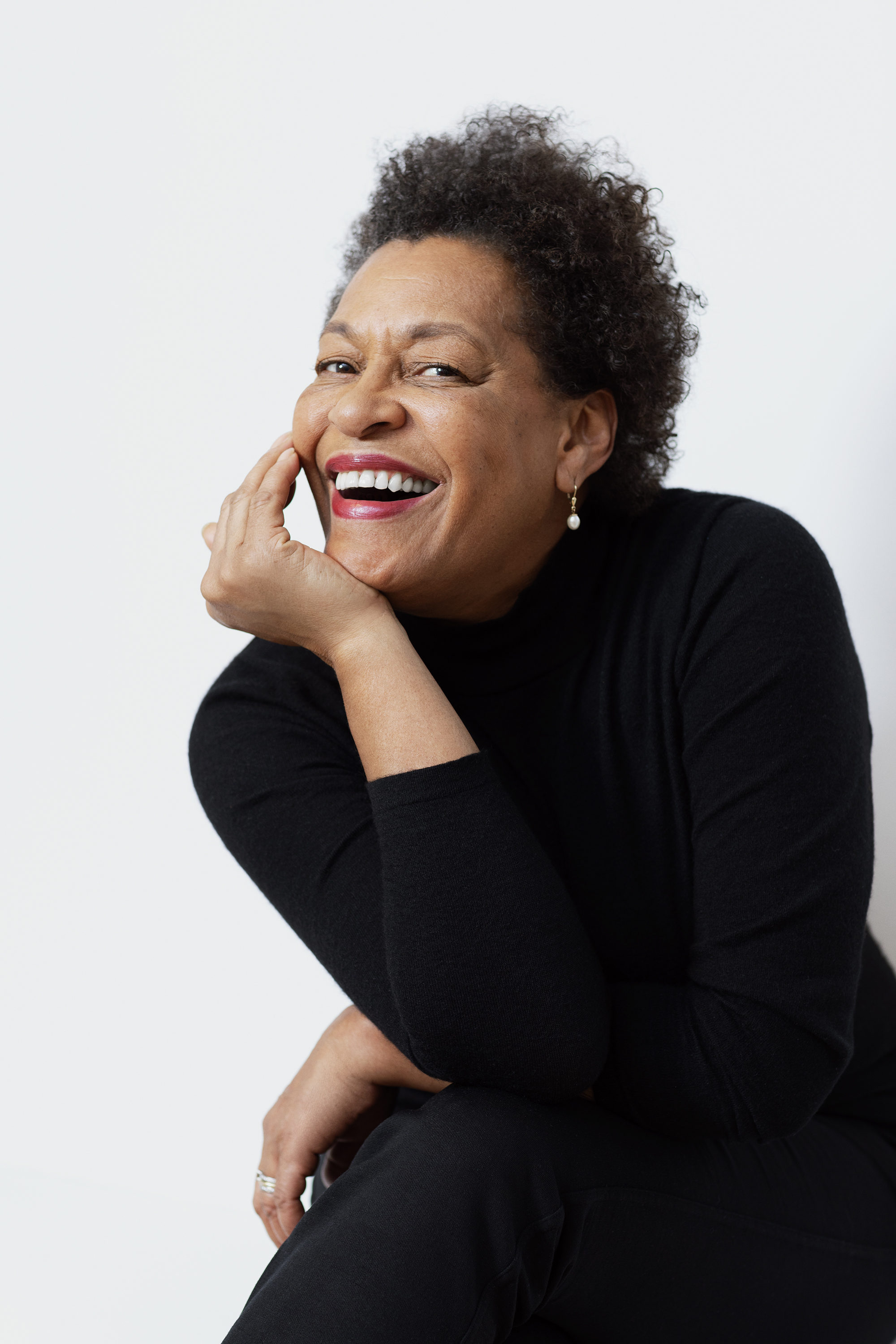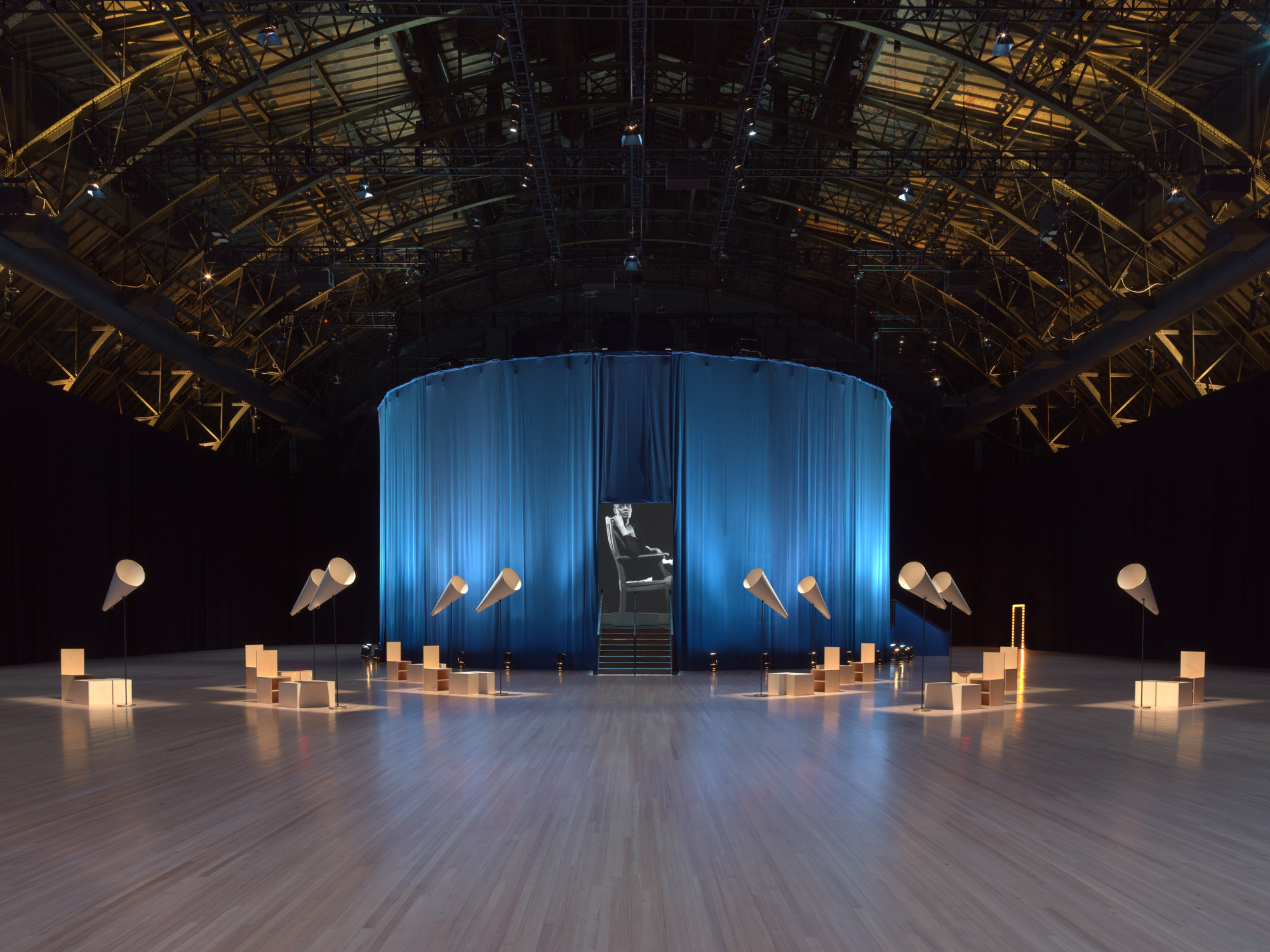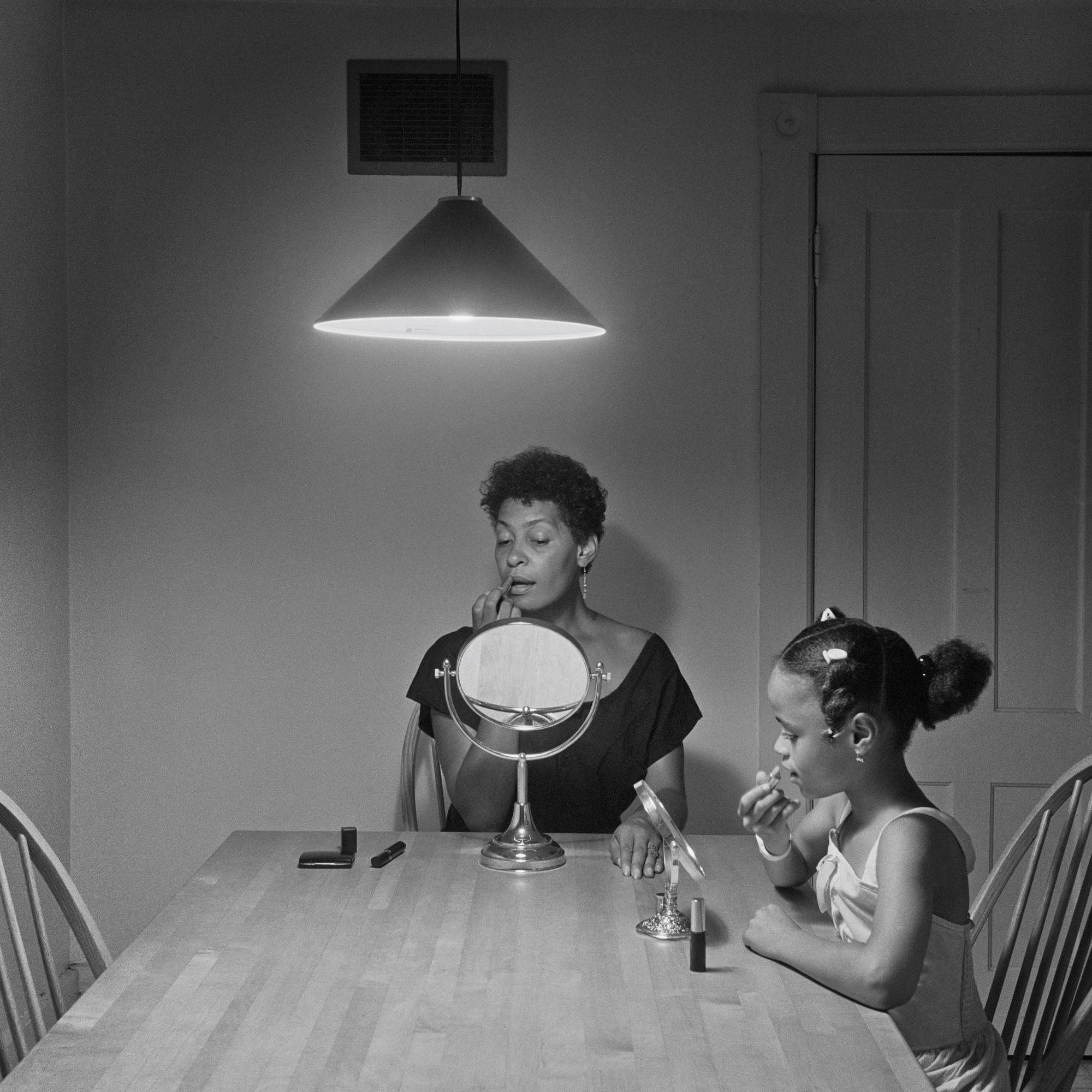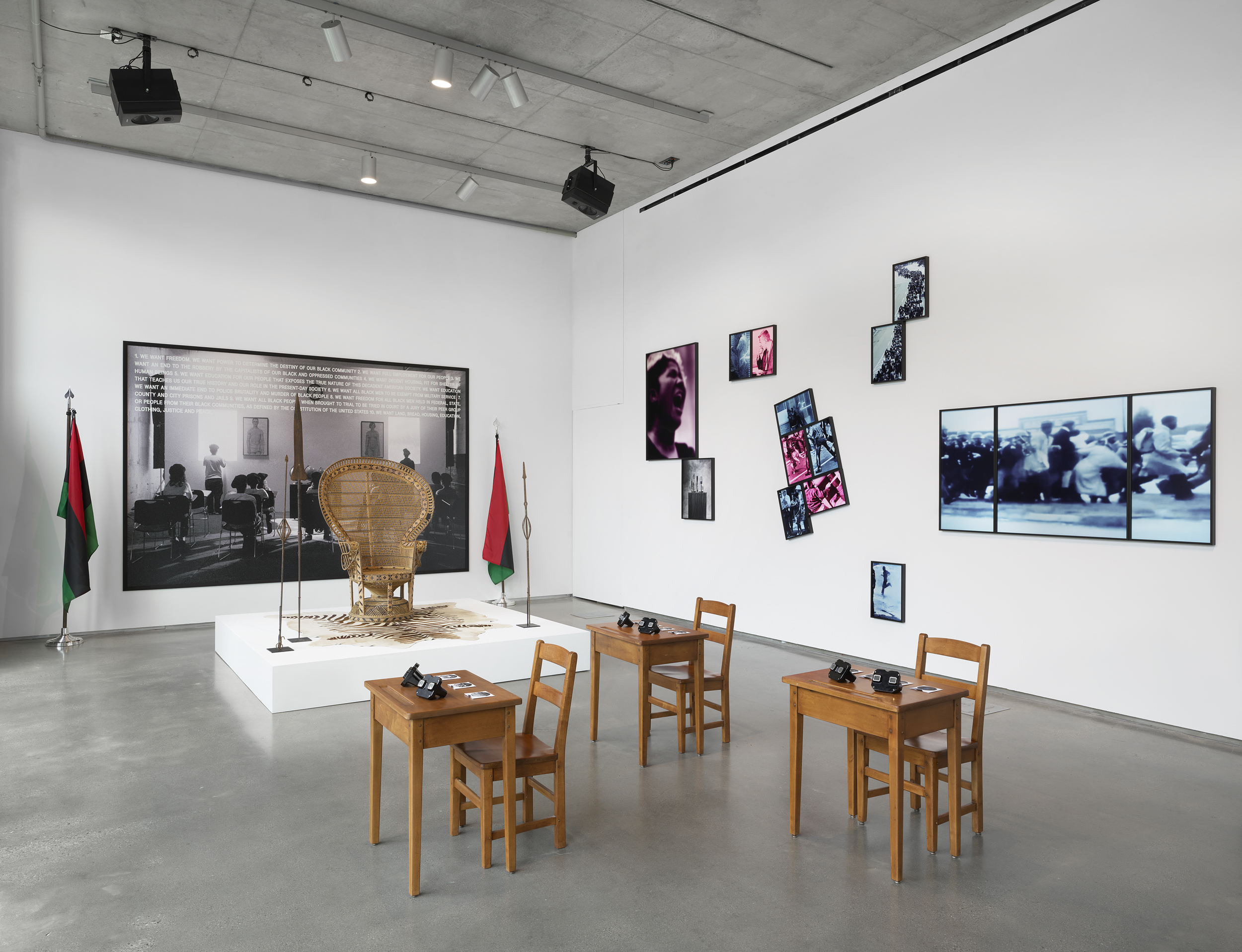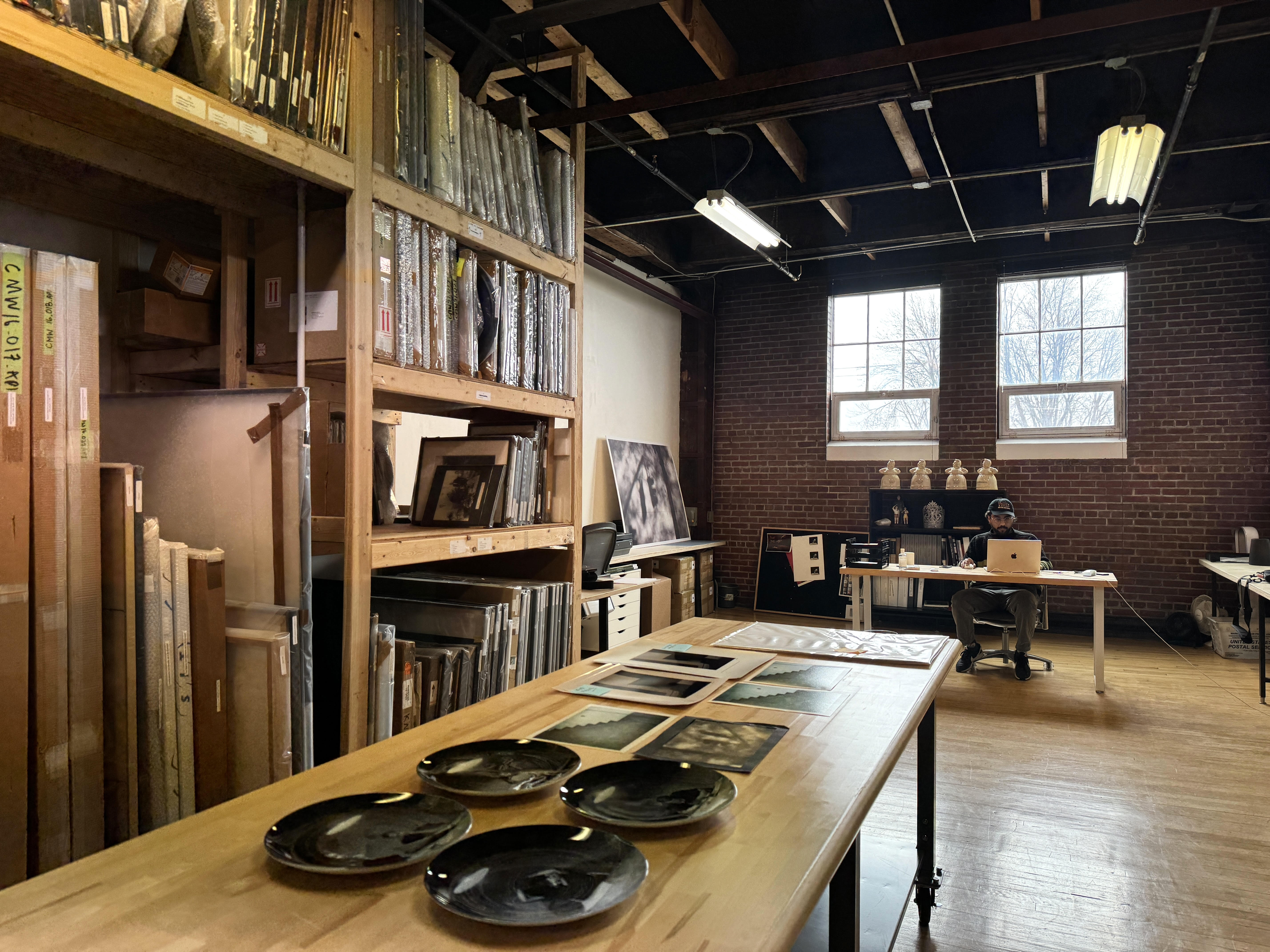
Carrie Mae Weems
Carrie Mae Weems is a conceptual artist who unpacks and confronts constructions of race and femininity in the pursuit of new models to live by. Grounded in the specificity of her lived experience as a Black woman but universal in its explorations of family relationships, cultural identity, power structures and social hierarchy, her artistic practice is primarily photographic but also incorporates text, fabric, audio, installation, and video. Informed by narrative storytelling, folkloric traditions and the observational methodologies of the social sciences, her approach to image-making ranges from staged and serialized narrative photography to the appropriation and adaptation of archival and ethnographic imagery. Weems takes aim at the complicity of the photographic medium in propagating dehumanizing tropes and the historical omission of Black women from fine art institutions and canons.
Weems is represented in public and private collections around the world including the Metropolitan Museum of Art; the Museum of Modern Art, New York; Tate Modern, London; Whitney Museum of American Art, New York; The Smithsonian American Museum of Art; and the National Gallery of Canada.
More recently, Weems was a mentor with Rolex Arts Initiative, 2020-22, she received the Bernd and Hilla Becher Award, 2022, and was the first Black female to receive the Hasselblad Award, 2023. Weems is currently the inaugural Artist in Residence at Syracuse University. She lives in Syracuse, New York with her husband Jeffrey Hoone who directed Light Work for four decades.
